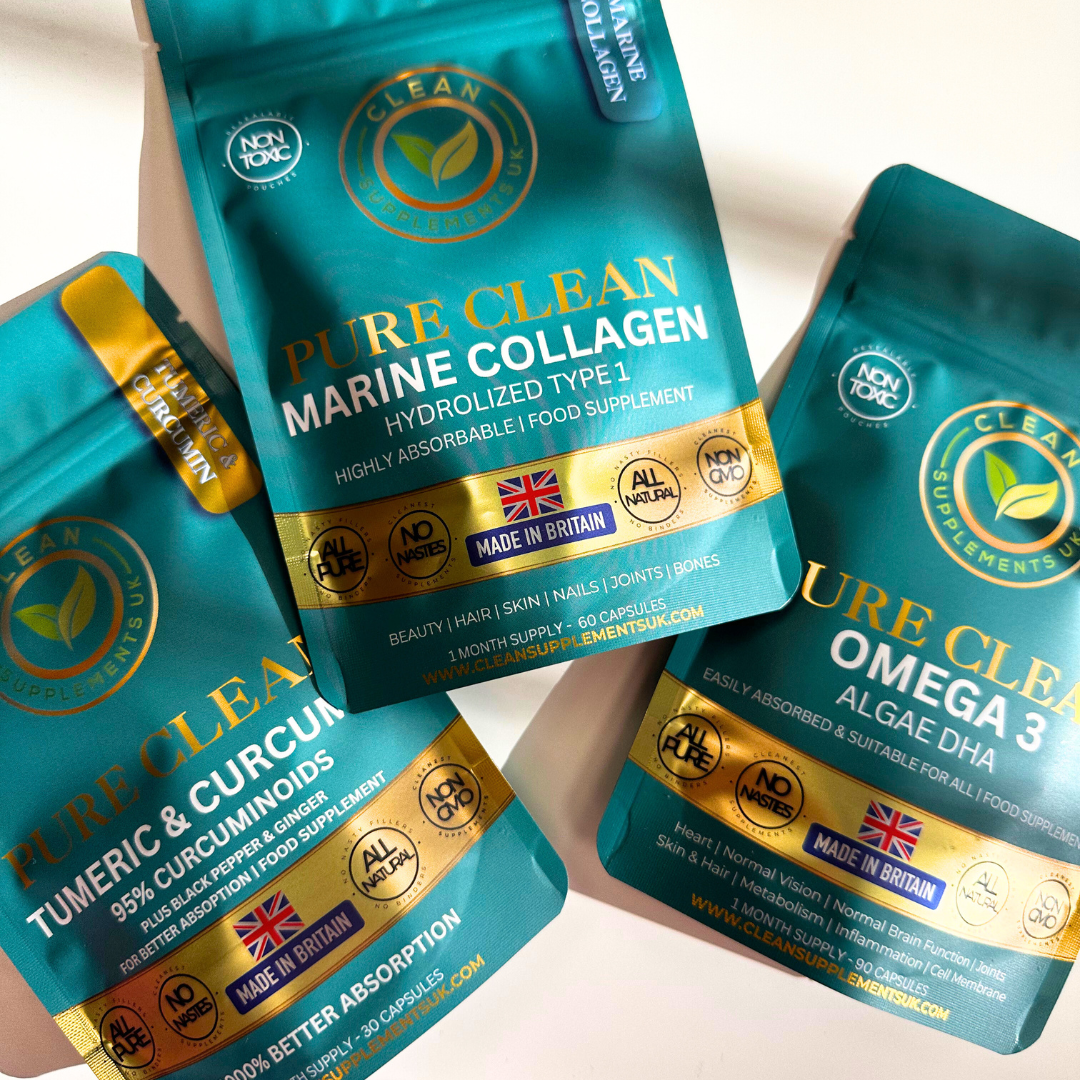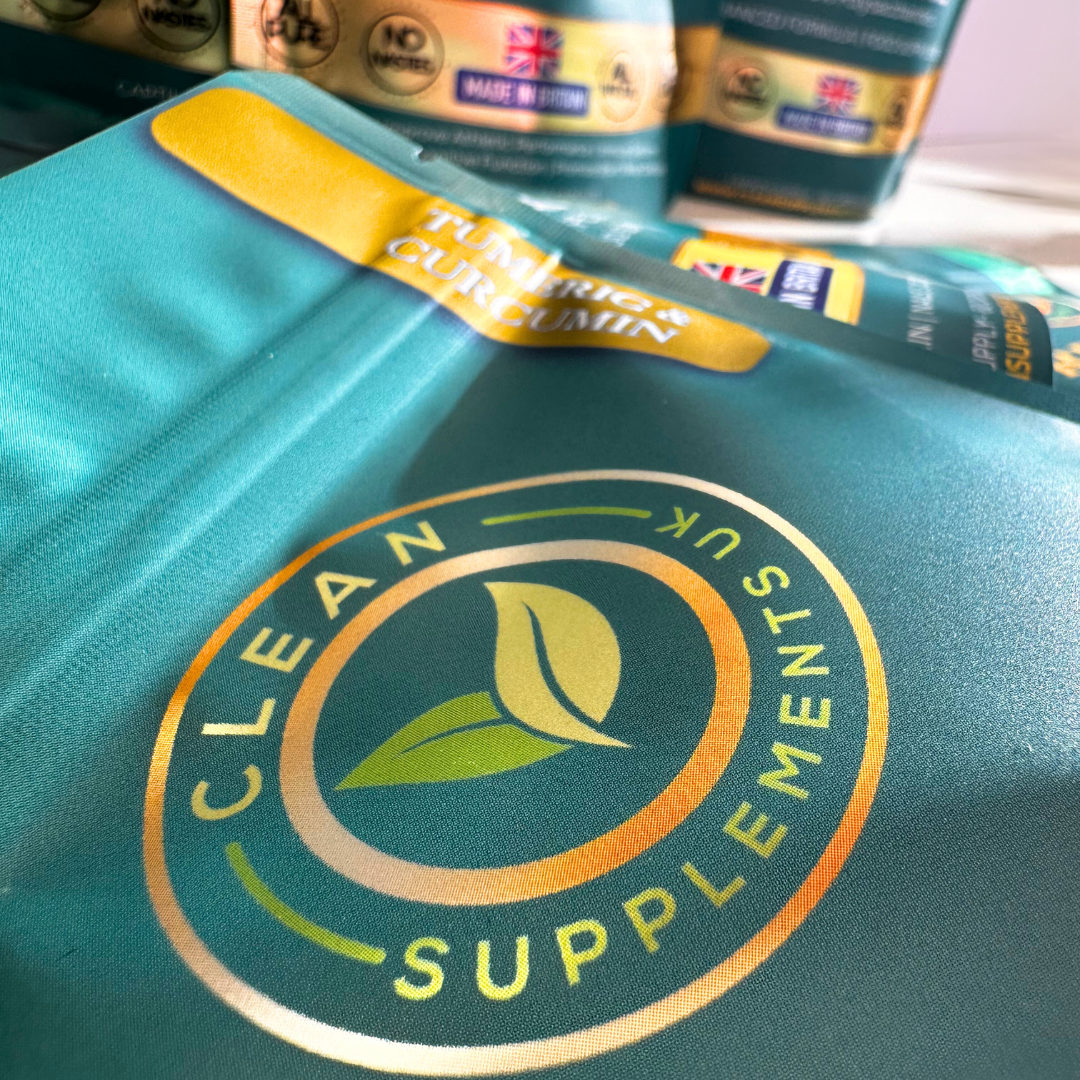Vitamin D Supplements in the UK: What to Look For (2025 Guide)
Vitamin D is the UK’s most searched supplement. With limited sunlight exposure and growing awareness of bone, muscle, and immune health, more people than ever are looking for the best Vitamin D supplements in the UK. But not all capsules are created equal. This guide explains what Vitamin D does, the difference between D2 and D3, and what to look for in a clean-label, filler-free supplement.
Why Vitamin D Matters in the UK
The NHS recommends Vitamin D for everyone in Britain, particularly through autumn and winter when sunlight is limited. Low Vitamin D levels are linked to:
- 🦴 Bone and teeth health
- 💪 Muscle function
- 🛡️ Immune support
Because natural sunlight is the main source, supplementation has become essential for millions of people across the UK. Well-known British brands such as Vitabiotics, British Supplements, and Nutrition Geeks have made Vitamin D popular, but customers are increasingly seeking filler-free alternatives with transparent lab testing.
Vitamin D2 vs D3: Which is Better?
There are two main forms of Vitamin D found in supplements:
- Vitamin D2 (ergocalciferol) – plant-derived, but less effective at raising blood levels of Vitamin D.
- Vitamin D3 (cholecalciferol) – more effective, the preferred form for supplementation. Now available as vegan D3 from lichen for those avoiding animal sources.
Conclusion: For most people, Vitamin D3 is the better option for raising and maintaining healthy Vitamin D levels.
What to Look For in a Vitamin D Supplement
Here’s a quick checklist to help you choose the best Vitamin D supplement in the UK:
- ✅ Filler-free – no magnesium stearate, no silicon dioxide, no unnecessary binders
- ✅ Vegan cellulose capsules – clean capsules, no gelatin
- ✅ Combined with K2 – supports calcium absorption and bone health
- ✅ Made in the UK – blended in GMP/BRCGS-certified facilities
- ✅ Transparent labelling & reviews – clear ingredient lists and independent customer feedback
Brands such as Cytoplan, Viridian, and Nutrition Geeks offer a range of Vitamin D options, but very few make a public no-fillers pledge or publish batch Certificates of Analysis (COAs). This is where Clean Supplements UK stands apart.
Common Problems With UK Vitamin D Supplements
Not all Vitamin D supplements are created equal. Common issues include:
- ❌ Hidden fillers such as magnesium stearate or silicon dioxide
- ❌ Gelatin capsules (not vegan-friendly)
- ❌ Imported products with unclear manufacturing standards
For customers looking for clean-label, transparent nutrition, these hidden additives and unclear origins reduce trust.
Clean Supplements UK: Filler-Free Vitamin D3 + K2
Clean Supplements UK is proud to set the standard with our Vitamin D3 + K2 supplement:
- 🇬🇧 British-made in UK GMP/BRCGS-certified facilities
- 💊 Filler-free – no magnesium stearate, no silicon dioxide, no nasties
- 🌱 Vegan cellulose capsules – never gelatin
- 📦 Eco pouch packaging – lightweight, resealable, eco-friendly
- ⚡ Fast UK delivery
Discover more about our No Fillers Standard and see how we’re highlighted in the Best Filler-Free Supplements in the UK (2025 Guide). Alongside household names like British Supplements and Vitabiotics, Clean Supplements UK is proud to be recognised for taking filler-free standards further.
The Future: Filler-Free Vitamin D as the UK Standard
As more UK consumers demand transparency and quality, filler-free Vitamin D supplements will become the new standard. Customers want peace of mind that every capsule contains exactly what the label promises - nothing more, nothing less.
Clean Supplements UK is helping lead this clean-label movement, delivering Vitamin D3 + K2 with no fillers, no binders, and nothing unnecessary. That makes us part of the trusted British market alongside brands like Viridian and Cytoplan, while setting a higher benchmark for transparency.
Shop Filler-Free Vitamin D3 + K2
*Food supplements are not intended to diagnose, treat, cure, or prevent disease. Always consult a qualified professional.*
Why Vitamin D3 + K2 Is the Superior Choice
While Vitamin D3 alone is highly effective, pairing it with Vitamin K2 offers superior benefits. K2 helps direct calcium into bones and teeth instead of soft tissue, reducing the risk of calcification. For the cleanest, filler-free option, see our full guide on Vitamin D3 + K2 in the UK.
Further Reading
- Clean Vitamins UK 2025 Guide – learn why “clean” matters and which supplements to prioritise.
- Shop Clean Supplements UK Vitamin D3 + K2 – filler-free, UK-sourced and trusted nationwide.
- Pair with Triple Magnesium – supports absorption, relaxation and sleep alongside Vitamin D3.
👉 Ready to optimise your health with clean, filler-free supplements? Shop the full Clean Supplements UK range today.









